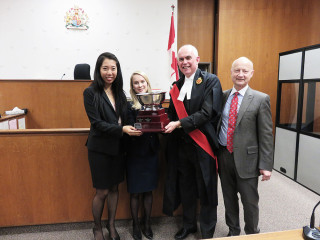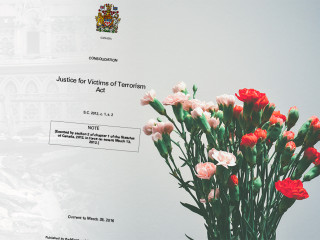The costs fallout of an abandoned summary judgment motion
Released June 21, 2016 | Full Decision [CanLII]
The Defendant brought a motion for summary judgment, based on the Plaintiffs’ failure to provide notice within 10 days of the fall. The Plaintiffs prepared responding materials as well as a cross-motion on the issue. The Defendant ultimately abandoned its motion after all of the relevant materials had been prepared and filed.
The court found in order for the Plaintiffs to overcome the notice requirement, they must demonstrate they had a reasonable excuse for not providing notice within 10 days and the failure to do so did not prejudice the City in its defence of the action.
The Court reiterated the interpretation of “reasonable excuse” as found in Crinson v. City of Toronto: “The law is clear that the courts have interpreted “reasonable excuse” in a broad and liberal manner at trial”. In particular:
The modern jurisprudence interpreting such language has emphasized, not surprisingly, that the words “reasonable excuse” should be given their plain and ordinary meaning and that the court should consider all the circumstances of the particular case in determining whether the plaintiff has indeed established reasonable excuse.
The Court had some strong words with respect to the conduct of Defence counsel at Examination for Discovery, and the obligations incumbent upon counsel in the process:
One of the purposes of an examination for discovery is to provide information to the opposing party and counsel as to the evidence in support of a party’s position. Since the City was taking the position that the Plaintiff’s claim was barred for lack of timely notice, when counsel asked at discovery for particulars of the prejudice, that information should have been provided…Counsel have a positive obligation to provide information and particulars in support of their case at the time of discovery. To play “cat and mouse”, particularly if counsel intends on bringing a Summary Judgment motion, is not acceptable. Such conduct is of no benefit to the parties and prevents counsel from properly evaluating a client’s case.
Further:
I reject the submission of the solicitor for the Defendant that it was somehow incumbent on counsel for the Plaintiffs to bring a motion on the refusal of counsel to provide particulars of prejudice. In my view, it was an improper refusal; unnecessary motions are to be discouraged. The decision of the solicitor for the Plaintiffs to set the action down for trial was reasonable.
Concerning costs, the court reiterated that where a motion is abandoned, the responding party is entitled to costs of the motion forthwith, unless the court orders otherwise (see Rule 37.09(3) of the Rules of Civil Procedure).
According to the Court: “A Summary Judgment motion seeking to dismiss the Plaintiffs’ claim for failing to provide notice according to the statute is a serious motion which requires carefully prepared materials in order to defeat the motion.” The fact the Plaintiffs brought a cross-motion was an irrelevant consideration on the issue of costs for the City’s abandoned motion, because the Plaintiffs were forced to file responding materials and chose to include a related cross-motion.
The Court found the City responsible for paying substantial indemnity costs, stating:
The launching of the Summary Judgment motion was ill-conceived; persisting with it, particularly after receipt of documents from the City which constituted evidence of a lack of prejudice arising from the late notice, was fraught with risk. That was the course the City chose to follow and as such, they must pay costs…There was a great deal of time to reconsider the wisdom of proceeding with the motion between when the City’s motion was served and when it was abandoned. The position of the City did not change until after the time and expense had been incurred by the Plaintiffs for the preparation of the responding materials.
The court reiterated certain principles have been established as a guide for the court when exercising its discretion to fix costs:
- The discretion of the court must be exercised in light of the specific facts and circumstances of the case in relation to the factors set out in Rule 57.01(1);
- The Court of Appeal has identified the overriding principle to be that the amount of costs awarded be reasonable in the circumstances
The Court awarded $35,000 in costs, inclusive of fees, disbursements and taxes.
Read the full decision on CanLII










